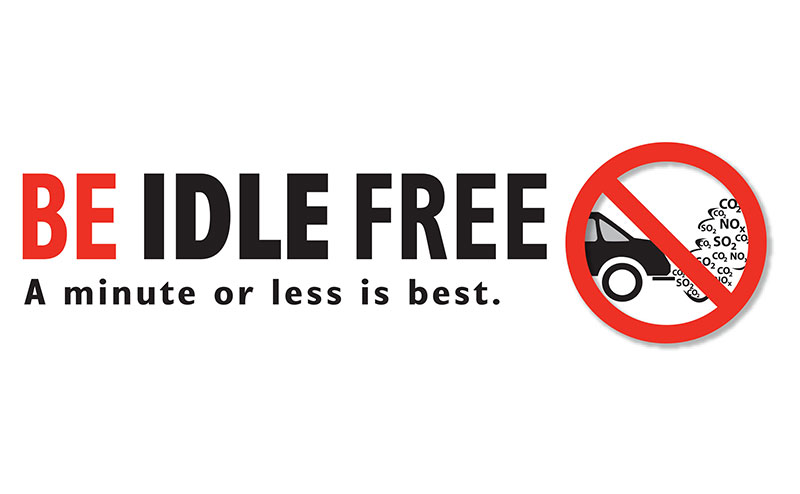
Unnecessary idling costs Canadians millions of dollars annually, a major contributor to climate change. Learn about the City of Edmonton's Be Idle Free campaign.
Community Standards Bylaw 14600 prohibits vehicles from idling for more than five minutes total in any thirty-minute period in any area identified as a no-idling zone. Bylaw 14600 also restricts a person from engaging in any activity that creates odour, emission, smoke, vapour, dust or other airborne matter that is reasonably likely to disturb another individual.
What is idling?
Idling is a bad habit that wastes fuel, adds to pollution and can contribute to health problems. Unnecessary idling costs Canadians millions of dollars annually, a major contributor to climate change. Idling your vehicle less will save you money on fuel, improve air quality in your community and reduce emissions contributing to climate change.
We are committed to making sure Edmonton is one of the cleanest, greenest cities worldwide by keeping its air quality at a high rating—above acceptable levels as measured in previous years.
What You Need to Know About the Bylaw
- The City will place signs about the bylaw in City right-of-way areas, where available, in front of schools or hospitals. Schools and hospitals will also place their own signs in the no-idling zones.
- The bylaw takes effect when the temperature rises above 0°C.
- Under the bylaw, drivers cannot idle for more than five minutes within any 30-minute period when parked in an area designated as no idling.
- The bylaw applies only to participating schools and hospitals.
- Vehicles licensed to provide public transport, such as school buses and taxis, emergency vehicles and vehicles transporting medically fragile people, are exempt from the bylaw but are encouraged to reduce or eliminate their idling time.
- This initiative will help create a healthier environment for school students, staff, hospital patients, and visitors.
What You Can Do to Reduce Idling
- Download our Be Idle Free Resources to start your own Be Idle Free campaign.
- Be more aware of the amount of time you idle.
- Reduce "warm-up" idling to 60 seconds; just make sure your vehicle's windows are clear before driving away.
Wheel bearings, steering, suspension, transmission and tires are only warmed when the vehicle is moving. It typically takes at least five kilometres of driving to warm up these components. - Turn your engine off if parked for more than 60 seconds during reasonably warm weather (above -10°C).
- Avoid using a remote car starter during reasonably warm weather (above -10°C).
- Stuck in traffic, using a drive-thru, picking up someone at school or waiting for a train to go by? Shut off the vehicle! Ten seconds of idling uses more fuel than restarting your engine.
- Consider using other ways to get around, such as public transit, walking, biking or jogging instead of driving.
We also provide City employees with information on how to reduce vehicle idling.
Be Idle Free Printable Downloads
Graphics
Flyers
Posters
Terms of Use
Permission is hereby given to reproduce the idling materials made available on this website by the City of Edmonton (COE) – Environment Branch. Please note, however, that the design of these materials cannot be modified without the consent of the COE. The COE must be acknowledged when using or referring to our materials. The City of Edmonton's identifying logos and wordmarks cannot be removed, covered or modified in any way.
Contact Us
Environment and Climate Resilience
If you are calling from outside of Edmonton: 780-442-5311
Email changeforclimate@edmonton.ca
Phone 311

